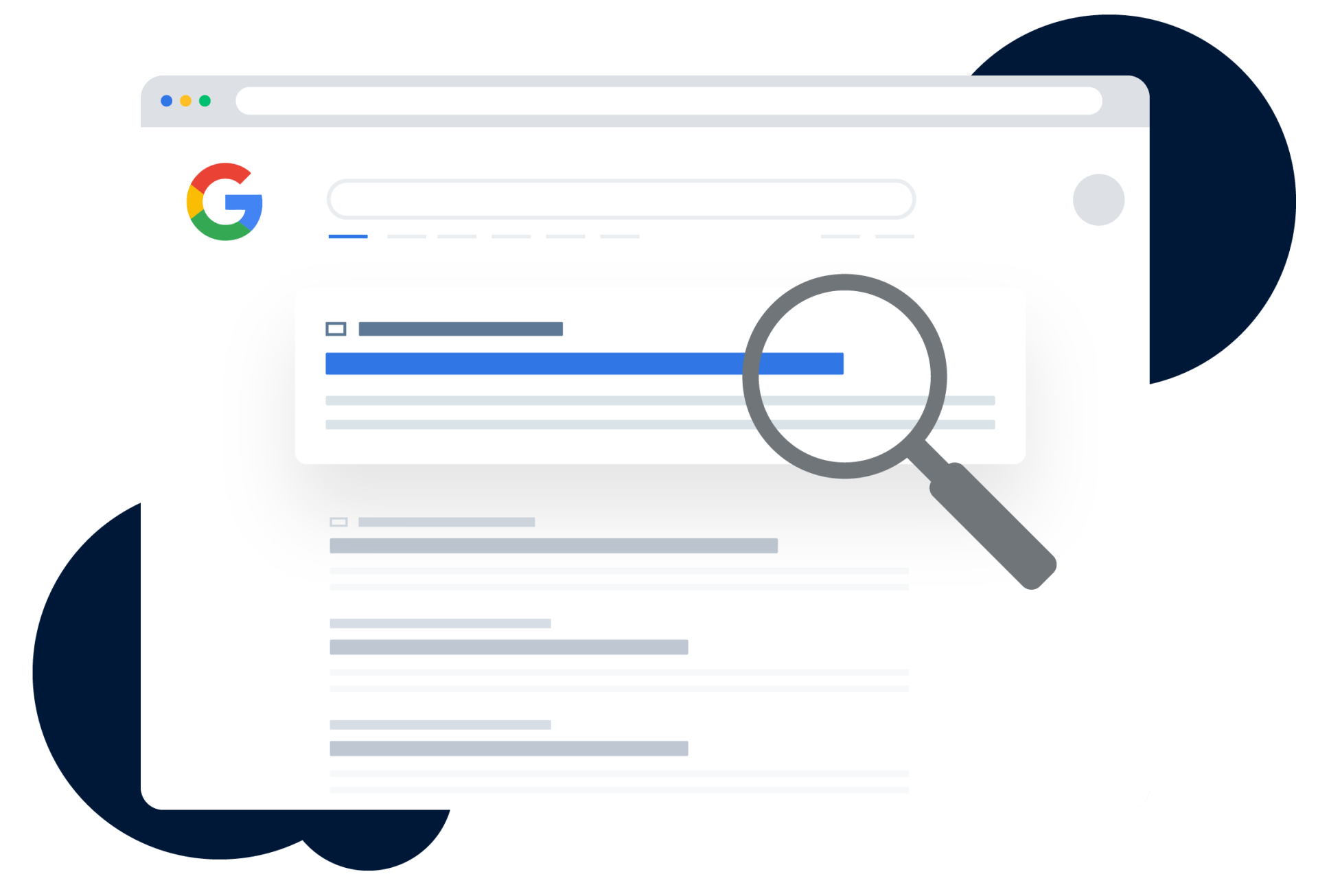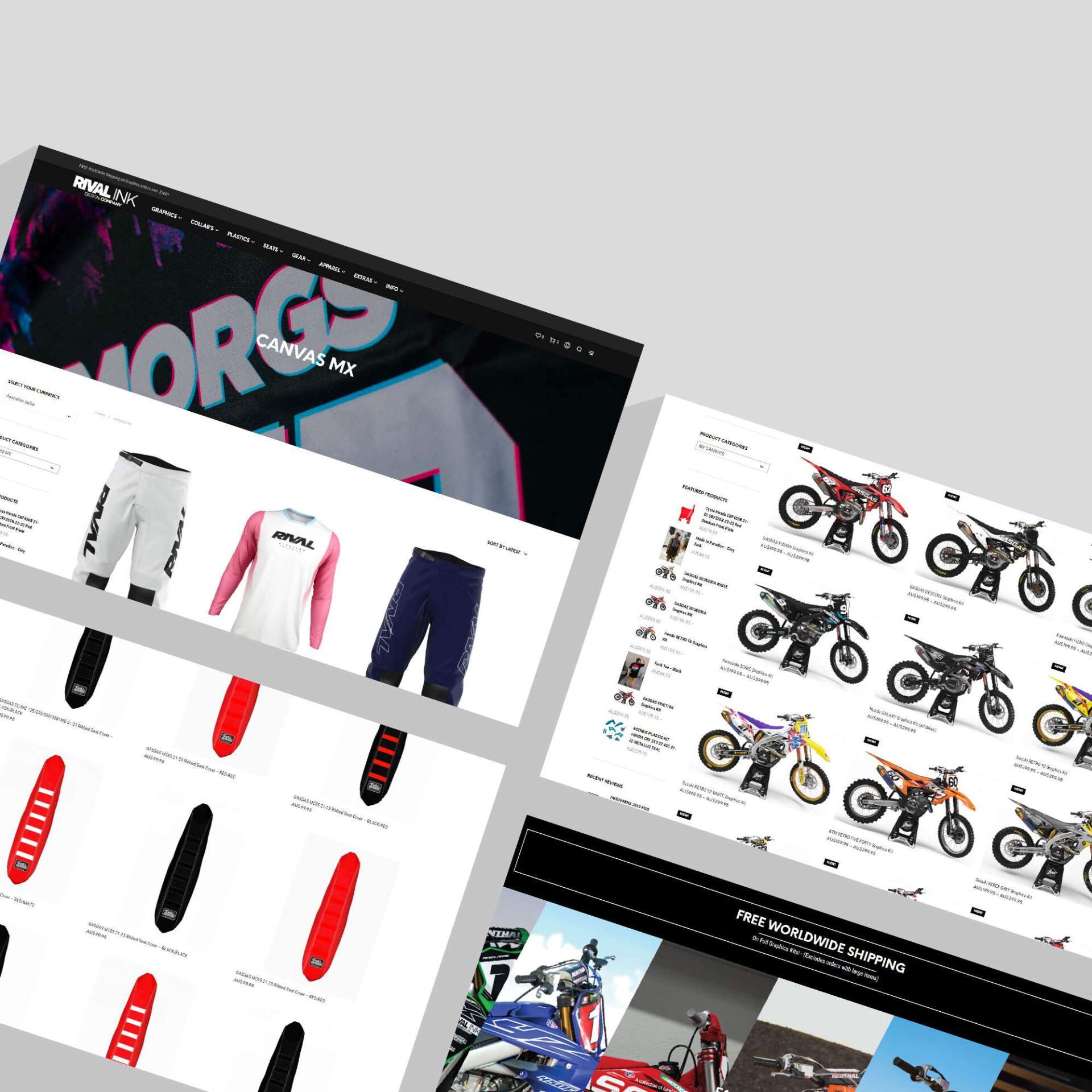Convert More with RankingCo: Must-Know eCommerce Marketing Tips

Why eCommerce Marketing is Your Gateway to Online Success

eCommerce marketing is the practice of using digital channels to drive awareness, traffic, and sales for online stores. It combines multiple strategies to guide potential customers through the buying journey:
- SEO and PPC to attract ready-to-buy shoppers
- Email automation to nurture leads and recover abandoned carts
- Social media to showcase products and build community
- Personalisation to create custom shopping experiences
- Analytics to measure performance and optimise campaigns
With over 2 billion digital shoppers worldwide and global eCommerce sales projected to reach $8.1 trillion by 2026, the opportunity is massive. Yet the average conversion rate sits at just 2.86%, highlighting the gap between traffic and actual sales.
The challenge isn't getting visitors - it's converting them.
Around 51% of shoppers now purchase using smartphones, while 43% research products on social media before buying. This shift means your eCommerce marketing strategy must work seamlessly across multiple touchpoints.
I'm Kerry Anderson, co-founder of RankingCo, and I've spent over 15 years helping businesses scale their digital presence. My experience scaling businesses from $1 million to over $200 million in revenue has taught me that success comes from balancing immediate conversions with long-term brand building.

Tip #1: Nail Your eCommerce Marketing Foundations
Think of eCommerce marketing like building a house - you wouldn't start with the roof, would you? Yet so many online store owners jump straight into running ads without laying the proper groundwork.
Getting your foundations right separates businesses that thrive from those that burn through budgets with little to show for it.
What is eCommerce marketing?
eCommerce marketing is your complete toolkit for turning website visitors into paying customers and keeping them coming back. It's not just about getting traffic - it's about attracting the right people at the right moment when they're ready to purchase.
What makes eCommerce marketing different is urgency and intent . While service businesses might nurture leads for months, eCommerce marketing focuses on people who want to buy now or can be convinced to buy soon.
The magic happens when you understand that eCommerce marketing isn't about individual tactics. It's about creating a seamless experience where your SEO gets people to find you, your content builds trust, your email automation recovers abandoned carts, and your personalisation makes each customer feel special.
Building your first eCommerce marketing plan
Start with your customers - not your products. Deep customer research is your secret weapon. Look beyond demographics and dig into behaviour patterns. When do they shop? What problems are they trying to solve?
The businesses we work with through our Digital Marketing Services in Brisbane that take this step seriously always outperform those that skip it.
SMART goals are your north star. Instead of "increase sales," aim for "boost conversion rate from 2.1% to 3.2% within six months while maintaining customer acquisition cost under $45."
Budget allocation should focus 60% on proven performers like Google Ads and SEO, 25% on emerging opportunities like social commerce, and 15% on testing new tactics.
Every successful eCommerce marketing campaign starts with these foundations. Without clear objectives and genuine customer understanding, even the most creative campaigns will underperform.
Tip #2: Drive Ready-to-Buy Traffic with SEO & PPC
When it comes to eCommerce marketing , there's nothing quite like combining search engine optimisation with paid advertising. While SEO builds your long-term foundation, PPC delivers immediate results.
The beauty lies in data sharing between channels. Your paid ads reveal which keywords convert best, informing your SEO strategy. Meanwhile, your organic search insights help craft more targeted ad campaigns.
Core eCommerce marketing SEO tactics
eCommerce SEO is different from traditional SEO. You're not just trying to rank - you're trying to rank for searches that lead to sales.
Site speed becomes critical when dealing with ready-to-buy shoppers. We've seen businesses lose sales simply because pages took too long to load. When someone's credit card is in their hand, those extra three seconds can mean the difference between a sale and a lost customer.
Long-tail keyword optimisation is where eCommerce businesses strike gold. Instead of fighting for "shoes," you're targeting "waterproof hiking boots women's size 7 Australia." These searches have lower competition but much higher purchase intent.
Internal linking strategy distributes authority across your product catalogue. Create natural pathways between related products and implement breadcrumb navigation that both users and search engines love.
Schema markup gives Google extra information about your products to display in search results. When your listings show star ratings, prices, and availability directly in search results, they naturally attract more clicks.
High-intent PPC tactics for eCommerce marketing
Google Ads for online stores requires a different mindset than lead generation campaigns. You're trying to make immediate sales, so ads need to showcase products instantly.
Product Listing Ads should be your bread and butter. Google Shopping campaigns dominate retail search results because they work beautifully for both shoppers and retailers.
Don't overlook alternative search advertising platforms either. These audiences often have higher disposable income, and lower competition can mean significantly better value.
Remarketing transforms browsers into buyers. Create specific audiences based on shopping behaviour - people who viewed expensive items get different ads than those who abandoned low-value carts.

The magic happens when your eCommerce marketing strategy treats SEO and PPC as partners rather than separate tactics.
Tip #3: Convert Browsers into Buyers with Content, Email & Personalisation
Getting visitors to your online store is just the beginning. The real challenge in eCommerce marketing lies in changing curious browsers into committed buyers.
Think about your own shopping behaviour. You rarely buy something expensive on your first visit. You research, compare, read reviews, and often leave to think about it. Your eCommerce marketing strategy needs to support this natural buying process.
Content that fuels eCommerce marketing success
Product storytelling transforms boring specifications into compelling reasons to buy. Instead of listing that hiking boots are "waterproof with 200g insulation," tell the story of how they kept someone's feet warm during a challenging mountain trek. This approach, combined with strong Onsite SEO , creates content that both search engines and customers love.
Content hubs around main product categories establish your brand as an authority. If you sell kitchen appliances, create comprehensive guides on meal prep and cooking techniques. These hubs attract thousands of qualified visitors monthly.
User-generated content carries incredible weight in purchase decisions. Customer photos using your products in real situations are trusted 2.4 times more than professional product shots.
How-to videos demonstrate value before asking for a sale. A video showing how to style a dress three different ways can increase conversion rates by up to 80%.
Buying guides capture high-intent traffic from people comparing options. Content targeting "best running shoes for beginners" ranks well and drives qualified visitors to relevant product pages.
Email & SMS automation that personalises eCommerce marketing
Email marketing delivers the highest ROI of any eCommerce marketing channel, but only when done thoughtfully. Today's consumers expect personalised communication that adds value.
Your welcome series sets the tone for the entire relationship. Instead of immediately pushing for a sale, introduce your brand story and provide social proof. A well-crafted welcome sequence can generate 320% more revenue than a single welcome email.
Abandoned cart recovery is perhaps the most important automation. With 70% of shopping carts abandoned, recovery emails can recapture 10-15% of lost sales. Send an immediate reminder, follow up with social proof after 24 hours, and offer a small discount after 72 hours.
Post-purchase nurturing extends beyond the initial sale. These emails have three times higher open rates because customers are already engaged. Send care instructions, suggest complementary items, and request reviews.
Segmentation based on purchase behaviour enables true personalisation. Create different journeys for new versus returning customers, high-value versus budget-conscious shoppers.
AI-powered recommendations are becoming increasingly effective. When customers see products that genuinely match their interests and previous purchases, they're much more likely to add items to their cart.
Tip #4: Multiply Reach Through Social, Influencer & Affiliate Power

Social commerce is changing how we think about eCommerce marketing . Instead of hoping customers will click through to your website, you can now sell directly within social feeds, reducing friction dramatically.
Social commerce accelerators
Instagram Shopping and Facebook Shops have revolutionised product findy. When you tag products directly in posts and stories, customers can tap to see prices and purchase instantly.
TikTok's findy algorithm is incredibly powerful for product exposure, but it rewards authenticity over polish. Raw, genuine videos showcasing products in real-life situations often outperform highly produced content by 40% or more.
Live shopping events create real-time community and urgency. When you host weekly product demonstrations, answer questions live, and offer exclusive discounts, you're building excitement and trust simultaneously.
Building genuine community engagement trumps follower count every time. When you respond thoughtfully to comments and create meaningful conversations around your products, you're building relationships that convert.
Influencer & affiliate eCommerce marketing hacks
The sweet spot for most eCommerce marketing campaigns lies with micro-influencers - those with 1,000 to 100,000 followers. Their audiences trust their recommendations more, engagement rates are higher, and collaboration costs are more sustainable.
According to latest research on influencer effectiveness , over 80% of marketers find influencer marketing highly effective.
Audience alignment matters far more than follower count. An influencer with 5,000 highly engaged followers in your exact niche will typically deliver better results than a celebrity with millions of general followers.
Commission structures for affiliate marketing need careful consideration. Your offers should align with profit margins while providing meaningful incentive for affiliates to promote enthusiastically.
Tracking performance accurately is crucial. Use unique discount codes, UTM parameters, and dedicated affiliate links to measure what's actually driving sales.
Our Get More Traffic strategies often incorporate social media optimisation to amplify organic reach and drive qualified traffic to eCommerce sites.
Tip #5: Retain, Upsell & Scale with Automation and Omnichannel Tactics
Here's where eCommerce marketing gets exciting - turning one-time buyers into loyal customers. Acquiring new customers costs five times more than keeping existing ones, and loyal customers spend 67% more than newcomers.
Loyalty programmes create emotional connections beyond transactions. Points-based systems work well, but the real magic happens when you offer exclusive access to new products or member-only sales.
RFM analysis (Recency, Frequency, Monetary) helps segment customers intelligently. Recent buyers might respond to cross-sell campaigns, while high-frequency customers could be perfect for subscription offers.
Chatbots and automation handle routine customer service while freeing your team for complex issues. Modern AI can answer product questions, track orders, and suggest complementary items.
Subscription models transform unpredictable revenue into steady streams. Whether monthly product boxes or automatic refills, subscriptions increase customer lifetime value while providing cash flow predictability.
Overcoming eCommerce marketing challenges
Data silos kill effective eCommerce marketing . When customer information lives in separate systems, personalisation becomes impossible. Start by connecting your most important data points: email behaviour, purchase history, and website interactions.
Low conversion rates frustrate many retailers, but systematic testing reveals improvement opportunities. We've seen businesses double conversion rates by addressing trust signals alone - clear return policies, security badges, customer reviews, and transparent pricing.
Cart abandonment affects 68% of shopping sessions. Beyond email recovery sequences, consider exit-intent popups offering small discounts. Retargeting ads can bring browsers back days later when they're ready to purchase.
Future-proofing your eCommerce marketing
AI personalisation is rapidly becoming essential. Companies using personalisation see revenue increases of 6-10%. Product recommendations powered by machine learning can suggest items customers didn't know they wanted.
AR and VR try-on experiences solve the biggest challenge in online retail - customers can't touch products before buying. Virtual fitting rooms and furniture placement apps can increase conversion rates by up to 65%.
Voice search optimisation requires a shift in keyword strategy. People speak differently than they type, using longer, more conversational phrases.
Our Technical SEO services ensure your eCommerce platform can handle advanced features like personalisation engines and automation workflows without slowing down your site.
Frequently Asked Questions about eCommerce Marketing
After helping hundreds of Brisbane businesses scale their digital presence, I've noticed the same questions come up repeatedly. Let me share insights that have helped our clients achieve breakthrough results.
How do I choose the right eCommerce marketing channels?
The secret isn't following what everyone else does - it's understanding where your customers spend their time and how they prefer to shop.
Start with deep customer research. Are your buyers scrolling Instagram during lunch breaks, or searching Google late at night? Do they prefer watching product videos on TikTok, or reading detailed reviews?
Your budget reality shapes channel selection. Google Ads delivers immediate visibility but requires ongoing investment. SEO through our eCommerce SEO services builds compound returns over time but needs patience.
Master 2-3 channels thoroughly before expanding. I've seen too many businesses spread efforts thin across six platforms and achieve mediocre results everywhere. Become exceptional at Google Ads and SEO first, then systematically test social media or influencer partnerships.
What KPIs matter most for online stores?
Conversion rate is your north star, but context matters. A 2.86% average sounds terrible until you realise mobile converts at 1.8% while desktop hits 3.2%. Suddenly, you know exactly where to focus optimisation efforts.
Customer acquisition cost (CAC) compared to customer lifetime value (CLV) tells the real story of business sustainability. We aim for at least a 3:1 ratio, but track this by channel. Google Ads might have higher CAC but deliver customers with higher CLV.
Average order value reveals your upselling success. Combine this with purchase frequency to spot growth opportunities. Are customers buying once and disappearing, or returning monthly?
Return on ad spend (ROAS) needs to exceed your profit margins by a comfortable buffer. While 4:1 ROAS sounds impressive, it's meaningless if profit margins are only 15%.
How can I reduce shopping-cart abandonment quickly?
Cart abandonment frustrates every store owner, but it's actually a massive opportunity. With 68% of carts abandoned, even small improvements can dramatically boost revenue.
Address the big four triggers : unexpected shipping costs, complicated checkout, security concerns, and limited payment options. Display shipping costs upfront, enable guest checkout, showcase trust badges, and offer multiple payment methods.
Exit-intent technology captures abandoning visitors at the crucial moment. A simple popup offering 10% off can recover 15-20% of abandoning carts instantly.
Your automated email recovery sequence is pure gold. Send the first email within an hour while products are fresh in their minds. The three-email sequence works beautifully: immediate gentle reminder, social proof after 24 hours, then final discount after 72 hours.
Our Technical SEO audits often reveal checkout process issues costing stores thousands in lost sales.
Open up Your Potential – Get Ranking with RankingCo
Mastering eCommerce marketing isn't just about knowing the right strategies - it's about executing them consistently while juggling everything else that comes with running an online business. If you're feeling overwhelmed, you're not alone.
At RankingCo, we've spent years perfecting eCommerce marketing strategies that actually work for Australian businesses. Our Brisbane, QLD headquarters gives us front-row seats to understanding exactly how Aussie consumers shop online, from seasonal buying patterns to trusted payment methods.
What sets us apart is our AI-driven approach. While others rely on guesswork and outdated tactics, we use advanced technology to analyse market trends in real-time. This means your campaigns are always optimised for what's happening right now, not what worked six months ago.
We've helped businesses across Australia transform their online stores from digital brochures into conversion machines. Whether you're Brisbane-based or anywhere across the country, we understand the unique challenges facing Australian eCommerce marketing - from competing with international retailers to navigating local shipping expectations.
Our team doesn't just implement tactics; we become genuine partners in your growth. We'll work with you to develop comprehensive strategies, handle the technical heavy lifting, and provide ongoing optimisation that keeps results improving month after month.
The eCommerce marketing landscape evolves rapidly. Consumer behaviour shifts, new platforms emerge, and competition intensifies daily. Having expert partners who stay ahead of these changes isn't just helpful - it's essential for long-term success.
Ready to stop struggling with scattered marketing efforts and start seeing the growth your business deserves? Contact us today to discuss how our proven eCommerce marketing expertise can accelerate your results.
The $8.1 trillion eCommerce opportunity is real, but it won't wait forever. Let's work together to ensure your business captures its fair share of this massive market.















